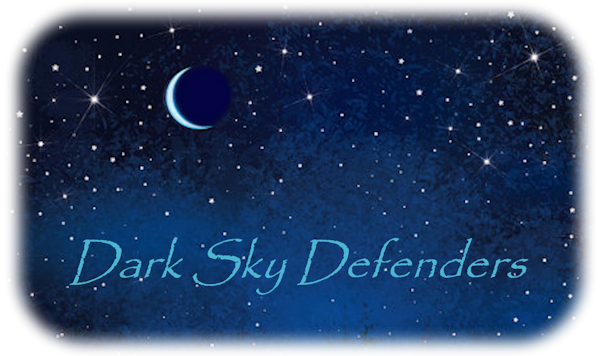|
With the 2017 expulsion of Goldendale Observatory State Park as an International Dark Sky Park due to failure to provide night sky conservation education or advocacy, the Goldendale business and political community faced a conundrum - how to regain the lost notoriety for Goldendale Observatory State Park to drive tourism, while at the same time continuing to do little if anything to protect the Observatory’s night sky from decades of unrestrained and increasing light pollution. "Leaders help themselves and others to do the right things. They set direction, build an inspiring vision, and create something new." When it comes to protecting the night sky of the Goldendale Observatory State Park, there is no such thing as leadership at City Hall. Local business interests see Goldendale Observatory State Park merely as an "amusement park," an "asset to leverage" and "marketing tool" to be exploited for "economic and commercial gain." In 2020 the Mayor and City Council of Goldendale contracted with Dana Peck and the "Goldendale Chamber of Commerce to assist the City and State Parks in submitting an application to the IDA in efforts to re-designate the Goldendale Observatory as a Dark Sky Park, or have the City recognized as a Dark Sky Community... and advise on issues such as outdoor lighting." Peck previously sabotaged and closed down the Friends of Goldendale Observatory when they advocated for enforcement of the City and County lighting codes. Hiring Peck for Developing a Dark Sky Community Plan which would include night sky conservation and protection was equivalent to hiring Jeffry Epstein to be your teenage daughter’s prom chaperone and protect her virginity. On March 2, 2020, Mayor Canon’s application letter, drafted by Peck and the Chamber of Commerce for a Provisional International Dark Sky Community Status, was submitted to the International Dark Sky Association. In it "Canon" states that the revised 2017 outdoor lighting policy “which while it attempts to meet the intent reflected in the IDA Dark Sky Community application, there are minimum requirements in that application that are currently not addressed in the code.” These requirements – which were present in the initially approved revision of the 1979 lighting code and modeled after other well-known and successful Dark Sky Community lighting ordinances – were torpedoed after intervention by local hotel owner and State Representative Gina Mosbrucker and other Goldendale business community interests. These removals went unopposed by Washington State Parks Area Manager Lem Pratt, as Parks had entered into a "partnership network" with deregulation advocate and Chamber Executive Director Peck, who also remained mute. The Canon/Peck International Dark Sky Community application letter stated that “the City, working in partnership with the Goldendale Chamber of Commerce, has engaged in an extensive community stakeholder outreach effort focused on the importance of dark skies over the last several years.” It additionally stated these were “initiated by a two-day Gorge Night Sky event [2016] with speaker Paul Bogard and Google-funded light pollution manual, a less visible Chamber-led dark sky public education has been underway with local student groups and businesses, stressing the importance of the effort to the Goldendale Observatory.” The "less visible" description is an understatement – it was and remains non-existent. There have been no education efforts – "extensive" or otherwise – by the City or Chamber, and there is no documentation reflecting this alleged “extensive community outreach.” Betraying the falsehoods above, there was a remains no use of the easiest to achieve education and outreach avenues – websites operated by both the City of Goldendale and Goldendale Chamber of Commerce are devoid of any mention of night sky conservation, or even the existence of lighting codes and their importance in protecting the night sky of the Goldendale Observatory State Park. Observatory Director Troy Carpenter’s website – “proudly provided by the Goldendale Chamber of Commerce” – is also devoid of any mention of night sky conservation issues. Note that this website was originally the Friends of Goldendale Observatory’s, which was taken over by the Chamber of Commerce when Carpenter and Peck deemed there was too much emphasis on light pollution – the reason the Observatory was placed in Goldendale by Clark College rather than Portland/Vancouver. Carpenter stated the topic of light pollution was “unpopular,” “pandering to amateur astronomers,” and efforts to mitigate it a “waste of money.” The Friends have since gone on to produce the Dark Sky Defenders website for night sky conservation education. The only place you will find public information on light pollution and the Goldendale and Klickitat County lighting codes is on the new Friends website. Carpenter stated “New area parks management are working closely with the IDA, local businesses, and community leaders to apply for an IDA status which acknowledges the darkness of the site but does not require parks staff to behave in an activist or legislative capacity.” Regardless of Carpenter’s misrepresentations of the IDA night sky conservation public education and advocacy requirements, the "effort" to become a Dark Sky Community has completely failed. When a community member asked at the Chamber’s After Hours event on April 29, 2021, about the status of any Dark Sky designation attempts, Observatory Director Carpenter responded, “I can clear up some misunderstandings about that. We’re not going to be reapplying for that status. I would go out of my way to avoid doing so actually" (emphasis added). He deferred to Mayor Canon regarding the Dark Sky Community designation, who responded, "It's still continuing, I haven't gotten an update on where we are on it – we should be there." A May 3, 2021 public disclosure request to the City of Goldendale for additional documentation regarding the application status or results yielded a statement from the City Manager that no documentation exists. Initial and follow-up inquiries to the IDA resulted in the following statements: May 14, 2020 – IDA Dark Sky Places Program Manager Adam Dalton: "Frankly, as proposed the Provisional IDSC for Goldendale, WA has absolutely no chance of being approved by the DSPC [Dark Sky Places Committee]. The only approved use of the Provisional certification which is approved by the DSPC applies to places where there are extensive lighting stocks which must be retrofitted in order to meet the 90% in 5 years requirement as mandated by the IDSC guidelines. The applying site must otherwise submit a totally-completed IDSC application which meets all of the other Program requirements, including adoption of a lighting management plan which meets IDSP Program standards. From what I can tell, it appears the City fundamentally misunderstands the IDSC certification process at this time." May 11, 2021 – Interim IDA Dark Sky Places Program Manager John Barentine: "There’s no indication that anything ever got off the ground in the way of a new nomination for Goldendale. There’s nothing “continuing”, because I find no evidence that anything ever started. I can confirm that nothing is happening, much less imminent... Goldendale has submitted nothing to us, so there’s no pending nomination of which to speak." Apparently a completed International Dark Sky Community application and supporting documentation was never submitted to the IDA by the Chamber of Commerce and its minions. This would have included an outdoor lighting inventory and compliance plan which would have included first having brought Goldendale's lighting code up to snuff. It is obvious Mayor Canon is either completely disengaged and let the wool get pulled over his eyes by Peck, or was being dishonest when he stated, "we should be there." Goldendale's several-thousand-dollars contract with the Chamber of Commerce to become an International Dark Sky Community has been a huge waste of its citizens’ money. An International Dark Sky Community designation was bound to fail with Peck because it requires "exceptional dedication to the preservation of the night sky through the implementation and enforcement of quality lighting policies, dark-sky education, and citizen support of the ideal of dark skies." IDSC Guidelines. The Chamber has not demonstrated any desire for the implementation or enforcement of quality night sky outdoor lighting policies. Especially troublesome was Peck's previous unethical behaviors and outright opposition to enforcement of even the bare-bones City and County lighting codes, as well as collusion with Observatory Director Carpenter to cripple meaningful dark-sky education and undermine public support for effective night sky protection. However, that was apparently the reason to select Peck and the Chamber to draft the application. Assistance in helping to reinstate the GOSP as an International Dark Sky Park or assisting Goldendale to become an International Dark Sky Community was offered by the IDA's John Barentine directly to Mayor Canon on February 9, 2018, but never responded to. The offer seemed to be open-ended for the foreseeable future. So why would the City of Goldendale wait two years and then choose to contract with Peck, who has demonstrated opposition to lighting code education and enforcement, over the genuine interest, advocacy, and unquestionable expertise of the IDA? Apparently Goldendale thought they would be able to fool the IDA with its half-baked and incomplete application from the county's lead lighting code obstructionist. However, Goldendale’s lack of sincere action about protecting the night sky is glaringly obvious – all you have to do is drive around at night. The only thing "exceptional" about Goldendale's (and Klickitat County's) night sky conservation and protection efforts is that for over 40 years they have been exceptionally inadequate. Goldendale and the Chamber would be just as happy if they had an “amusement park” rather than an observatory – and not have to bother with public education and support of, or pesky regulations and their enforcement for, the much-needed conservation of the Observatory's natural night sky environment. Unfortunately you can’t get massive donated roller coasters or Ferris wheels, Federal construction grants, or decades of taxpayer operating funds and millions of capital improvement taxpayer dollars to foot the bill for that. As of July 2021, no further action regarding achieving an International Dark Sky Community designation for Goldendale or surrounding Klickitat County has been initiated, and Washington State Parks – unlike almost every other state park system in the world – remains opposed to International Dark Sky Park involvement. There is no sincere interest in a attaining a legitimate Dark Sky Community designation in Goldendale. It has been sought merely as a façade for generating tourism dollars without a real commitment to night sky conservation. The Chamber of Commerce wants the sizzle, not the steak. Former Chamber Executive Director Peck had a clear history of opposition to real efforts to protect and conserve the night sky. Moreover, the need for and importance of lighting codes and their application was apparent and promised even before the Observatory was built, and should have been widely promoted for decades, regardless of the presence or lack of an International Dark Sky Park or Community designation. Because local political and business interests regard Goldendale Observatory merely as an "asset to be leveraged" and "marketing tool" for exploitation to "fill up hotel rooms and restaurant spaces," they are content to ignore its real need for night sky restoration, conservation, and long-term sustainability. And with Observatory Director Carpenter they have the perfect collaborator. He overwhelmingly supports economic exploitation and is more than happy to be the center of attention, while contemptuously minimizing the importance of night sky conservation, education, and advocacy as "hippy-dippy activism" and "amateur astronomer pandering." If you listen carefully, you can hear the amateur astronomers who built the Observatory’s telescope and purposely tried to locate it where it would have a dark night sky well into the future, turning in their graves. “Light pollution from Goldendale, Wash. floods the sky on a cloudy night at the Goldendale Observatory State Park on Tuesday, Dec 9, 2014. The observatory, run by the Washington State Parks, is a dark sky destination for people from around the region, and is the only public observatory in the Northwest.”
Yakima Herald-Republic/Photo: Mason Trinca In rural Colorado, a growing push to preserve dark skies as artificial light spills out of cities and towns is gaining momentum amid greater pandemic-driven focus on a long-neglected part of the natural environment. The International Dark Sky Association on June 7 announced the designation of the Towns of Nucla and Naturita, Colorado, as an International Dark Sky Community, reflecting the outcome of a rigorous, eighteen-month nomination process. Nucla and Naturita join six other International Dark Sky Places in southwestern Colorado to form an emerging hotspot in the U.S. movement to preserve night skies. “The news that Nucla and Naturita have joined the family of International Dark Sky Places is especially welcomed as we see western Colorado quickly becoming a national focal point for dark-skies awareness and conservation,” said IDA Executive Director Ruskin Hartley. “We congratulate both towns for setting an example that we hope others will study and emulate.” A tale of shifting economic fortunes Nucla and Naturita are two nearby, small towns in western Colorado, U.S., whose twin histories and evolution through time are closely intertwined. Both towns were founded in the late nineteenth century around the regional economy of agriculture, ranching and mining. The gradual and ongoing draw-down of extractive activities in the area, along with abundant public lands in this part of the western U.S. and a typically low-density, rural scale of development has led to a recognition of the value of abundant and renewable natural resources such as dark night skies. Realizing the value of this resource, locals formed the West End Dark Sky Alliance (WEDSA) in 2020 with the mission ‘to preserve our dark sky resource and reduce light pollution through education and advocacy.’ Deb Stueber of WEDSA described what the designation meant to the towns. “These are exciting times for dark sky enthusiasts in Colorado,” Stueber enthused. “We are happy our West End communities are now recognized by IDA as one of the darkest places left on the planet, and that we appreciate and want to preserve as much of our historic, rare, and exceptional dark starry skies as we can.” Following a lead made in Colorado International Dark Sky Community status is awarded based on exceptional dedication to the preservation of the night sky through the implementation of quality outdoor lighting policies, extensive public outreach and education, and the proactive support of area residents and stakeholders. Nucla and Naturita followed the example of another pair of Colorado towns, Westcliffe and Silver Cliff, that achieved IDA International Dark Sky Community status in 2015. Ed Stewart, member emeritus of the Dark Skies of the Wet Mountain Valley, Colorado, helped shepherd the Westcliffe and Silver Cliff nomination to a successful conclusion. “During our 2014 IDA community application preparation, we never thought that our dual-town approach to certification would be a motivation for others in a similar situation of towns adjoining or close to each other,” Stewart said. “We are glad that Naturita and Nucla are now part of the many Colorado Dark Sky Places and hope that certification brings them the rush of enthusiasm, support, and recognition that we are still experiencing over six years later.” Sights set on an even bigger prize Fresh off their success in Nucla and Naturita, WEDSA members already have bigger goals in mind. A result of the increasing regional interest in dark skies may be an eventual ‘Western Slope International Dark Sky Reserve,’ a complex accreditation intended to bring durable, landscape-scale protections to nights in the area. WEDSA is working with the Norwood Dark Sky Advocates (NDSA) from the nearby town of Norwood, which received its own International Dark Sky Community label in 2019. Stueber thinks this makes good sense to the community beyond seeing the stars at night. “By adopting ‘smart’ lighting practices, residents could protect their properties and save money while enhancing their health and wellbeing as well as the health of insects and other pollinators, migrating and hunting birds, other wildlife and stock animals,” she explained “There is no downside to good lighting practices!” Story by the INTERNATIONAL DARK-SKY ASSOCIATION |
Archives
July 2024
|
|
Donations to Dark Sky Defenders do not go to DarkSky International. Please contribute directly to DSI for donations and memberships.
|
|

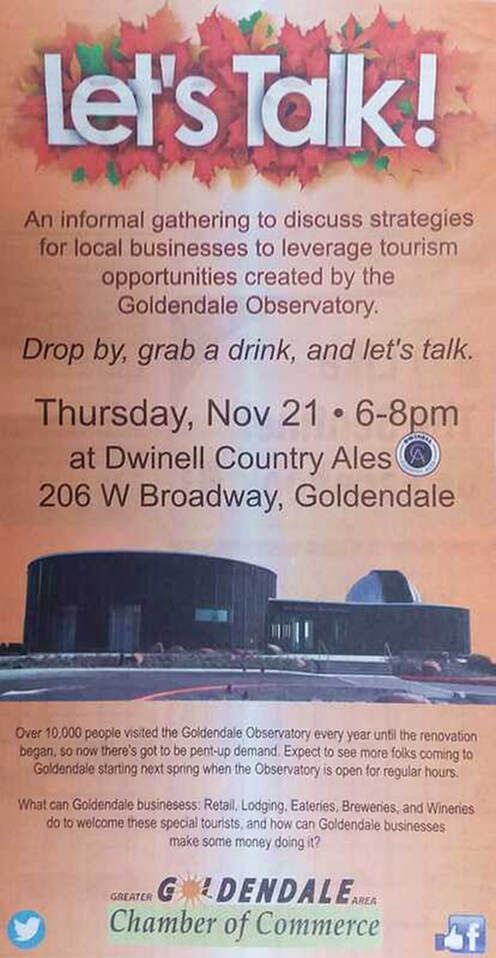
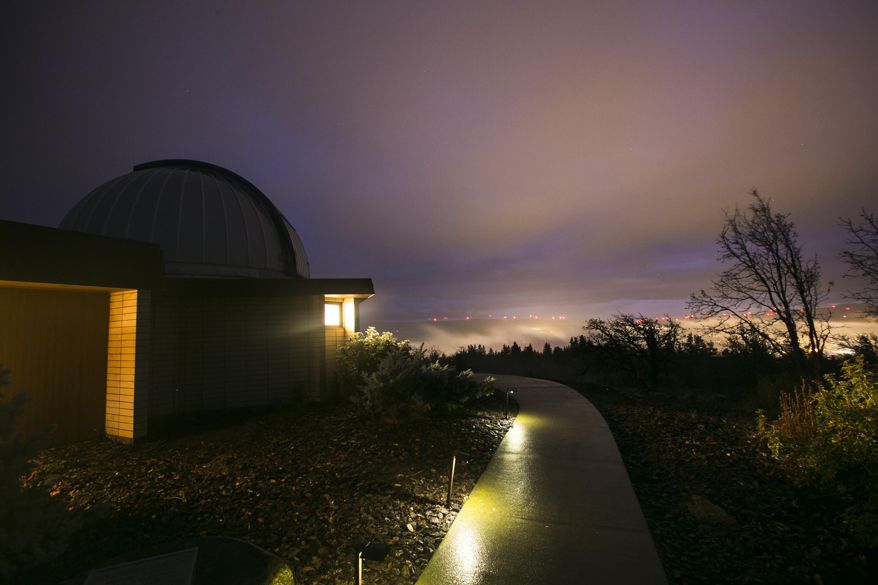
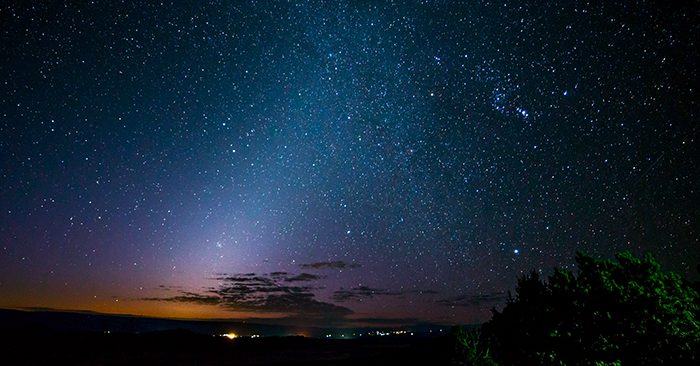
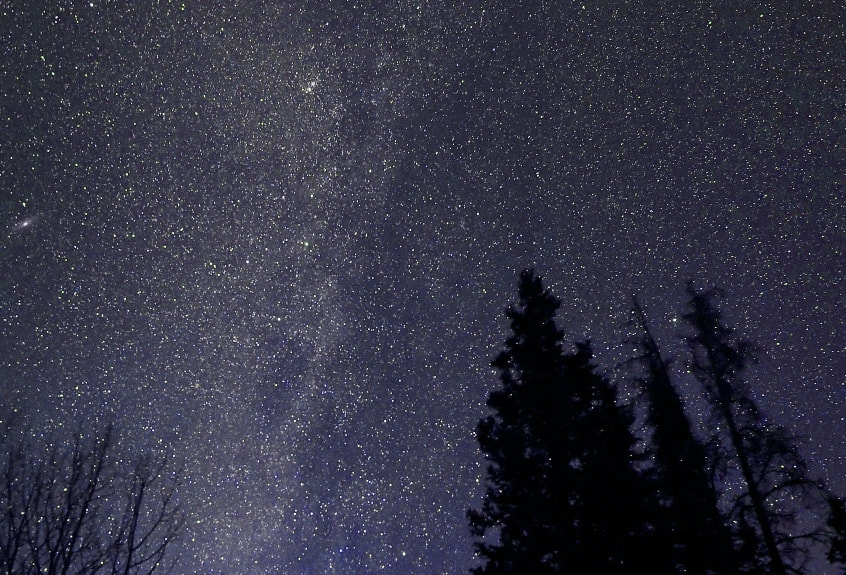
 RSS Feed
RSS Feed
